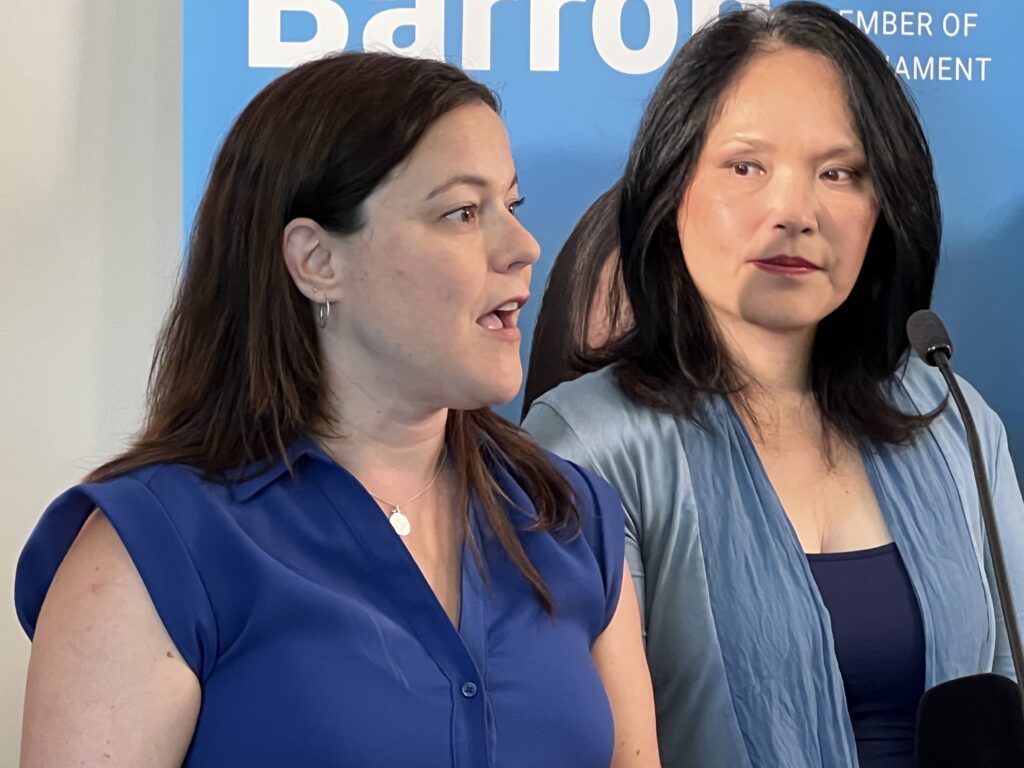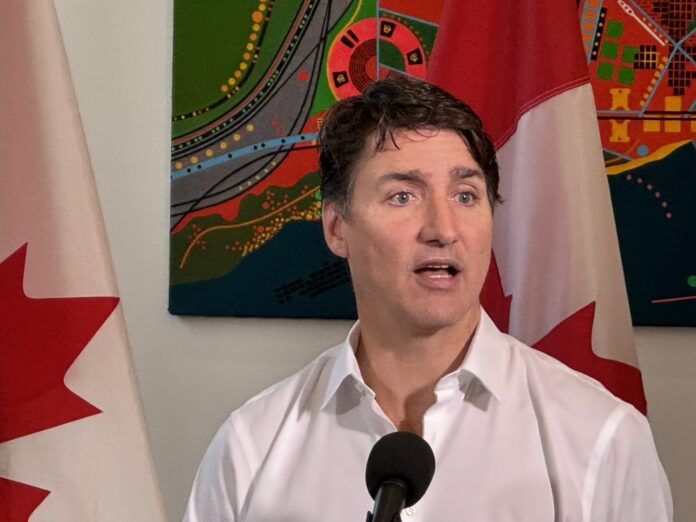After three days of caucus meetings the liberal party says they’re more unified and ready to take on the conservatives starting on Monday.
During the event that took place at the Vancouver Island Convention Centre (VICC), in Nanaimo, the federal government tackled issues on affordability, leadership and how to shift gears to deal with their dwindling poll numbers across Canada.
Even though several members of parliament have left the party, and with two byelections happening in Montreal and Winnipeg, prime minister Justin Trudeau says it is everyone’s democratic right to change their minds and that includes his party.
“In a democracy people will have all sorts of different perspectives,” Trudeau says. “It’s important we have that even within the liberal party.”
Caucus planned to address, what they call, the key issues troubling people across the country during the retreat such as affordability, housing and Trudeau says this is what they’ll be working towards.
“All of us need to make sure Canadians are being supported, now and in the future,” he says.
There was no clear indication whether Trudeau would step down if the liberal party was pushed out in two upcoming by-elections, but Mark Carney (chair on economic growth) did say this was not the time for him to even think of adding his name for any elected federal position.

Photo credit: Justin Baumgardner, VistaRadio
“I will serve to the best of my ability, and I am interested in helping our country grow,” Carney says. “I am interested in doing something, not being something, and this is a decisive time for the economy.”
Deputy prime minister Chrystia Freeland weighed in on the economy by saying the forecast for 2025 looks promising, and with the help of Carney on the new task force the outcome for Canadians looks even more optimistic.

Photo credit: Justin Baumgardner, VistaRadio
“The Bank of Canada was the first of seven countries to cut interest rates three times,” she says. “Interest rates are at the lowest they’ve been in almost four years, and they will continue to fall.”
Even caucus chair, and Quebec MP Brenda Shanahan weighed in saying the support behind the prime minister and the economy is unparalleled, but the government knows they can do more.

Photo from: Brenda Shanahan political Facebook page
“This caucus is unified, and we will refocus on how to win the next election for Canadians,” says Shanahan. “They’re counting on us to do so.”
However, this left many residents across Vancouver Island perplexed as to why the feds would choose to retreat to an area that is predominantly NDP.
Protestors gathered out front of the VICC for three days wondering if the Liberals had come to the area to garner votes or show they were able to foster support across the country, and if an election is called, they’re ready to proceed and deliver.
“We’re not afraid even though we are in a minority parliament,” Shanahan says. “It’s less stable, but that doesn’t mean we can’t make it work for Canadians.”
Protestors outside had a different view of things, especially with the rise in crime, homelessness, and cost of living. One protestor vented his frustration earlier in the week by saying Canadians have had enough of this federal government and it’s time to call an election.
“People are stuck with the high cost of living, but Trudeau can stay in the most expensive hotel in the city,” protestor Justin Bruce says. “He has done nothing for First Nations, and for him to come here is a disgrace.”
Even NDP MP Lisa-Marie Barron weighed in on the conversation saying the government is looking to put a new coat of paint on a tarnished nine-year record.

Photo credit: Justin Baumgardner, VistaRadio
“Trudeau and his Liberals have made a big point about their visit to Nanaimo being a ‘fresh start’, but they’ve had nine years,” she says. “People in Nanaimo, and across Canada aren’t buying it.”
The government is still declining in the polls, but the Trudeau government hopes this chance to regroup will help their chances in the next federal election.






